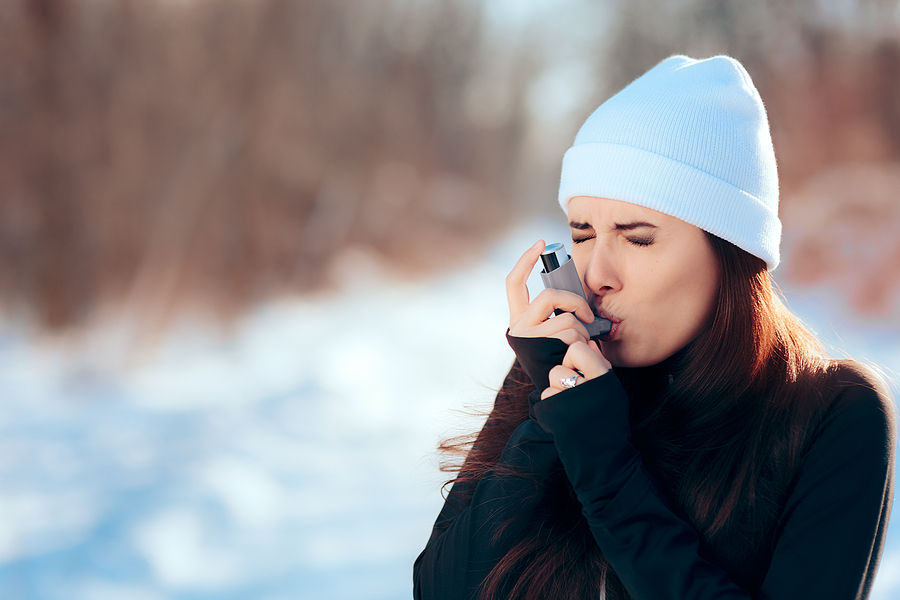Avoiding Outdoor Allergic Reactions: Tips for a Fun California Summer
Posted By:SSG Admin Posted On:24-Jun-2024
CDC statistics for 2021 state that 31.8% of adults in the U.S. suffer from allergies. Allergies impact 27.2% of children aged 17 or younger. This includes all allergies, including food, skin allergies (eczema), and seasonal allergies. If you count just seasonal allergies, it’s 25.7% of adults and 18.9% of children. Many of the symptoms are severe enough that 4.1 million adults went to a doctor in 2019.
Bright blue skies and sunny days lure you outside, but allergies make it hard to enjoy it. Don’t let summer end your plans. We have tips to help you manage your symptoms and enjoy the weeks of summer before rainy days return.
Know Your Allergens
What triggers your allergies? When you know what you’re allergic to, it’s easier to manage them. In California, summer seasonal allergies usually tie into grass pollen, ragweed, and tree pollen.
Head inside and dust mites and pet dander can create problems. Mold and mildew are more likely to happen inside, but that doesn’t mean you won’t run into mold spores outside in damp forests, compost, or around pools where water splashes out or leaks.
Allergies to insect bites and stings are other possibilities. Bee stings can be deadly to some people. Mosquito bites might swell more on one person than another. Even a flea bite might be relatively itchy to one person and cause swelling and severe itchy or even pain in another.
Are you allergic to the sun? It’s more of a sensitivity, but it does happen. There are four conditions to consider.
- Actinic prurigo (rare) – Causes an itchy rash with pimples on skin exposed to the sun.
- Photoallergic reactions – When sunlight hits your skin, redness, rashes, and itchy bumps occur.
- Polymorphous light eruption – This one is more common and causes red patches and hives within 30 minutes of exposure to the sun.
- Solar urticaria (rare) – An itchy rash and welts appear within minutes of exposure to the sun.
If you suspect you have one of these conditions, you need to be careful in the sun. Everyone should use sunscreen, but people with sensitivities like these should invest in UV-protective clothing and a wide-brimmed hat. Talk to a doctor about the rashes, pimples, and hives you experience in the sun. It could easily be something in the sunscreen you’re using too, so it’s best to have it diagnosed.
Be Proactive About Your Allergens
You know what triggers your allergies. Be proactive about avoiding areas where your allergies are more likely to get triggered.
Before you head outside, check the weather for pollen counts. If pollen counts are high, they’ll be lower in the evening or earlier in the morning. But, remember that wind spreads pollen, so windy days are best spent inside. Weather.com and Pollen.com are two sites where you can enter your ZIP code and learn the current pollen counts and what pollens are highest right now.
AirNow.gov is another good source for checking air quality. It also shows you the current ozone levels, which is helpful to people with asthma.
Wear as much as you can to keep pollen out of your hair, off your skin, and away from your eyes, nose, and mouth. A wide-brimmed hat is not only good for preventing sunburn, but it can shield your head from too much pollen. Sunglasses add another level of protection to keep pollen out of your eyes. evenings).
If possible, take off your outdoor clothes in a garage or breezeway. Clothes that have pollen spores clinging to them should go straight into the wash. When that’s done, go shower and wash pollen out of your hair and off your skin. If you have an outdoor shower, that’s even better as you can get pollen off your body and not bring anything into the home.
Enjoy the Outside Safely
Whatever you do, enjoy your time outside by being safe. Swimming and kayaking often get you away from pollens from grasses and weeds. Wear a life preserver when you’re in a water vessel and swim with others. Remember that water may not be as warm as you expect, so pay attention to how long you’ve been in the water.
If you want to go hiking, higher elevations may have lower pollen counts. Pollen spreads more on windy days, so you might find it best to hike on calm days. Pay attention to the temperature outside.
Allergies to insect bites and stings aren’t to be ignored. Carry an EpiPen with you if your allergies are that severe. Try to avoid areas where the insect in question is likely to be. If you’re allergic to bees, a walk through a field of flowers may be riskier than you want.
What Are the Most Common Treatments for Allergies?
Work with a Fresno allergy specialist to find the best treatments for your allergies. Antihistamines that you take in pill or liquid form may work well, but you might find a nasal spray works better.
Depending on the severity of your symptoms, you may need to keep an EpiPen with you when you’re outside. If allergies trigger asthma, special consideration needs to be made to taking care of yourself. Always have your inhaler on you.
Consider allergy shots that help reduce your body’s reaction to allergens. An allergic reaction occurs when the body reacts to an allergen and triggers an inflammatory response. If you acclimate your immune system slowly to those allergens, it lessens the reaction. Symptoms become milder and don’t slow you down.
No matter which treatment option you decide to use, make sure you take pills or use nasal sprays early enough in the season to start helping your body. If you want to try immunotherapy options like allergy shots, remember you’re not going to find just one shot works. It takes several shots given over weeks or months.
Allergy Treatments Have Come a Long Way
Allergy treatments have progressed over the years. Oral medications are not the only option. Allergen immunotherapy is an option that helps desensitize your body to specific allergens that bother you. Immunotherapy is effective against allergies people experience when outside, including pollen, insect stings, and mold spores.
You don’t have to get a shot either. If you’re not a fan of needles, there are sublingual (SLIT) treatments that you administer under your tongue. It’s a good option for allergies to your environment.
Book an appointment with Premium Allergy & Respiratory Center. Dr. Angela Sabry is a board-certified allergy specialist helping Fresno-area residents. Don’t let another California summer pass you by. Get out and enjoy the sun and beauty of nature with Dr. Sabry’s help.





